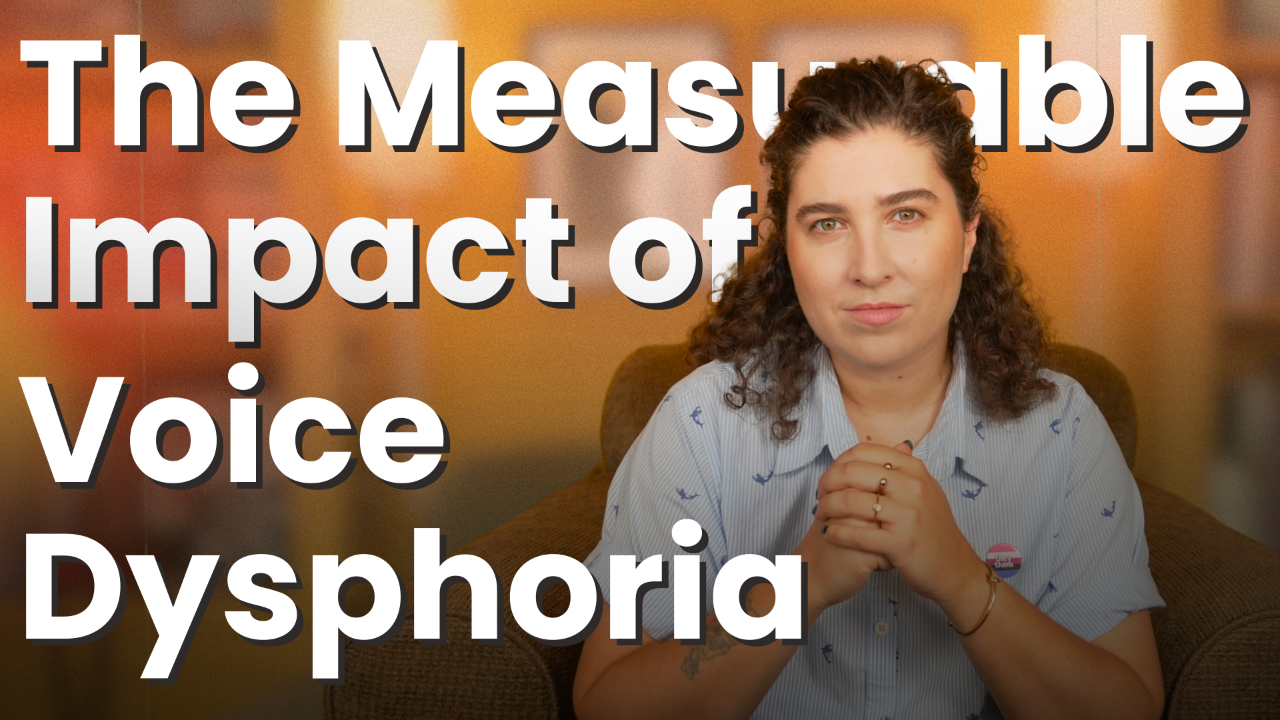Q: Why does my voice still crack after one year on testosterone?
Feb 02, 2024
The other day on TikTok Live, I had a conversation with a viewer who shared their concern about their voice still cracking after being on testosterone for over a year. Together, we delved into various exercises to address this common issue. In this blog post, I'll share the insights and exercises that emerged from that live session.
The Lingering Voice Crack: A Common Dilemma
The viewer's question echoed a sentiment familiar to many individuals undergoing testosterone therapy. Despite the significant voice changes brought about by testosterone, the elusive voice crack still lingered. Everyone has a unique experience with their voice when it comes to taking testosterone, but understanding what is happening physiologically can make the process smoother.
The Brain-Body Disconnect: Why Does It Happen?
The interesting part about voice cracking post-testosterone is the brain's struggle to catch up with the physical changes in the vocal cords. The brain may still follow an outdated map, leading to attempts at vocal ranges that the new instrument can't quite achieve. This mismatch results in those unexpected cracks that can be frustrating.
Embracing the New Instrument: Remapping the Brain
To tackle this issue, the key is to remap the brain and create a new understanding of the instrument you have post-testosterone. One effective exercise involves singing through the entire vocal range. The goal is to slip between the head and chest voice, creating a new roadmap for the brain. This exercise might sound unconventional, but it helps bridge the gap between the changing registers of pitches.
The Ambulance Siren Approach: A Functional Technique
One recommended technique is to start switching between head and chest voice in an ambulance-siren-like manner. It may not be the prettiest exercise, but it serves a functional purpose—training the brain to adapt to the new vocal landscape. The aim is to create a seamless transition between the two registers, gradually erasing the outdated map ingrained in the brain.
Building the Bridge: Descending Glisses and Octave Exercises
As the brain becomes more accustomed to the switching technique, the next step is introducing descending glisses. Starting above the registration point in the head voice and gradually bringing it down helps solidify the connection between the registers. Once comfortable with this, progressing to descending octave glisses adds an extra layer of challenge. These exercises work towards creating a more harmonious vocal transition.
To hear examples of these exercises, watch the video below!
Patience is Key: Understanding It's a Journey
The live session emphasized the importance of patience in the journey of trans voice work. While the viewer had been on testosterone for over a year, it was highlighted that this is still a relatively early stage in the process. Like any other skill, the voice takes time to develop, and it's perfectly normal to be working through these nuances.
TikTok Live Community Support
The TikTok Live community played a significant role in the conversation, with viewers actively participating and expressing gratitude for the shared exercises. The sense of camaraderie in practicing together showcased how important community is in a trans voice practice. Feel free to join in on TikTok every Monday afternoon!
Conclusion: Embrace the Journey
In conclusion, the persistence of voice cracking on testosterone is a common concern, but it's essential to recognize it as a part of the journey. Remapping the brain through exercises like switching between head and chest voice, descending glisses, and octave exercises can contribute to a more seamless transition. Remember, taking your time and embracing the unique path of your voice changes is okay. If you're navigating similar concerns, try out these exercises and share your experiences – this trans community is here to support you, and so am I!
Want weekly tips, resources, and insights on trans voice training? Sign up for my newsletter and get the latest content delivered straight to your inbox. It's free!









